Image
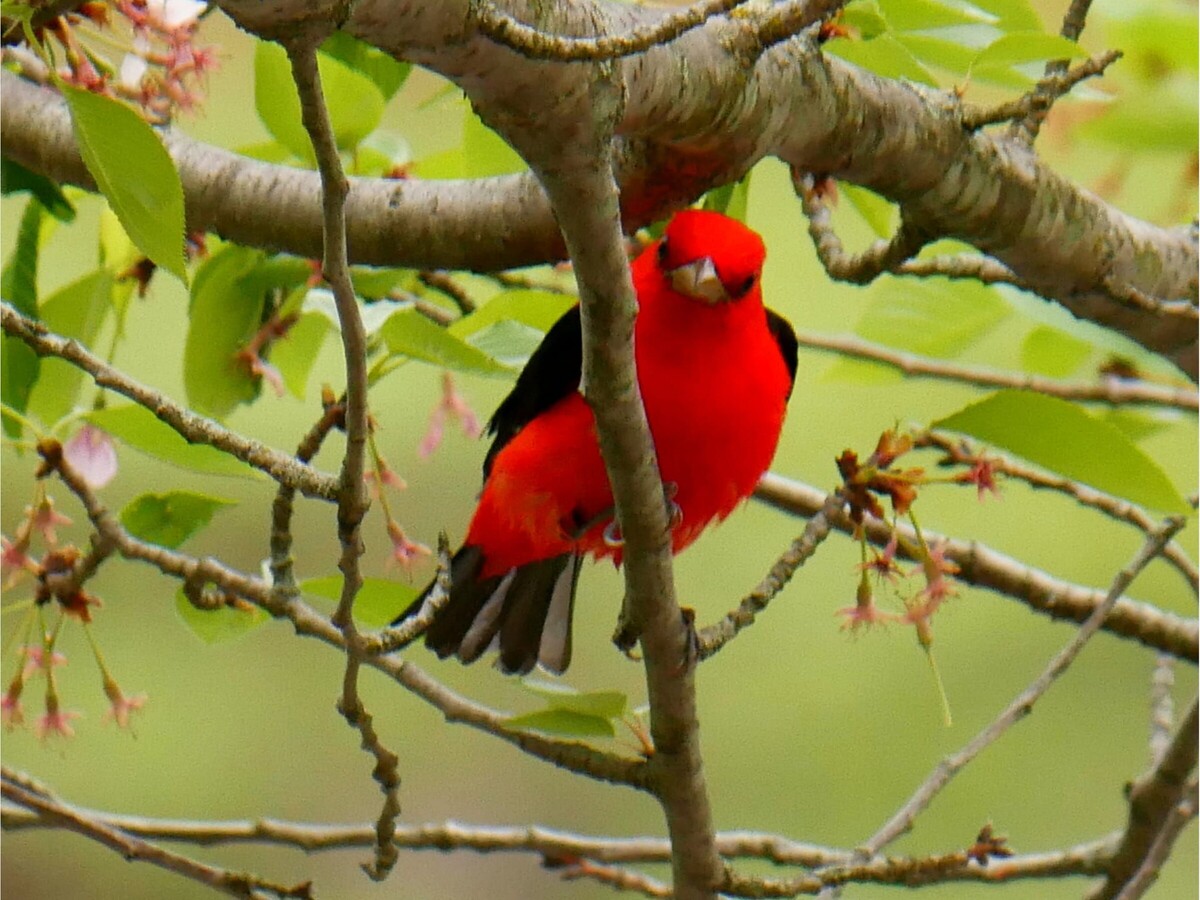
SKYLARK'S ARTICLE OF THE WEEK - MOTHER EARTH
Rare things are as beautiful as Mother Earth. Our home. God gave us everything we need to live this glorious life.

Our blue planet. How blessed we are to live here. We must nurture and take care of her. Mother Nature. You teach us.
In 1969 at a UNESCO conference in San Francisco, peace activist John McConnell proposed a day to honor the Earth and the concept of peace to first be observed on March 21, 1970, the first day of spring in the northern hemisphere. This day of nature's equipoise was later sanctioned in a proclamation written by McConnell and signed by Secretary General U Thant at the United Nations. A month later, United States Senator Gaylord Nelson proposed the idea to hold a nationwide environmental teach-in on April 22, 1970, and hired a young activist named Denis Hayes to be the national coordinator. The name "Earth Day" was coined by advertising writer, Julian Koenig. Denis and his staff grew the event beyond the original idea for a teach-in to include the entire United States. Key non-environmentally focused partners played major roles. Under the leadership of labor leader Walter Reuther, for example, the United Auto Workers (UAW) was the most instrumental outside financial and operational supporter of the first Earth Day. According to Hayes: "Without the UAW, the first Earth Day would have likely flopped!" Nelson was later awarded the Presidential Medal of Freedom award in recognition of his work. The first Earth Day was focused on the United States. In 1990, Denis Hayes, the original national coordinator in 1970, took it international and organized events in 141 nations. On Earth Day 2016, the landmark Paris Agreement was signed by the United States, the United Kingdom, China, and 120 other countries. This signing satisfied a key requirement for the entry into force of the historic draft climate protection treaty adopted by consensus of the 195 nations present at the 2015 United Nations Climate Change Conference in Paris. Numerous communities engaged in "Earth Day Week actions," an entire week of activities focused on the environmental issues that the world faces. On Earth Day 2020, over 100 million people around the world observed the 50th anniversary in what is being referred to as the largest online mass mobilization in history.
Earth Day is a good day for gardening. I've written about the benefits of gardening in a previous article, but here is some input from Stacker. Stacker is a news service that provides stories for us to share here on our newsletters with Patch Labs. I found it worth sharing.
Six surprising health benefits of gardening:
Sure, tending to plants and flowers brings pleasant fragrances, vibrant colors, and a little buzz for the birds and bees, but the real groundbreaking magic happens beneath the surface. A garden does more than brighten up an outdoor space—it can transform your health in ways you might not expect.
Does gardening count as exercise? Are there any mental health benefits to growing your own plants? The answer is an affirmative yes to both.
From lowering stress to supporting weight management, gardening offers lots of powerful mind-body benefits. Whether you're a seasoned green thumb or still trying to learn how to keep a houseplant alive, all the unexpected health benefits of gardening might just convince you to dig in.
What Are the Health Benefits of Gardening?
How does gardening support your health?
Gardening can:
Ready to grab your work gloves? We're getting into the weeds of all the science-backed ways gardening can enhance overall well-being. Let's go!
1. Gardening Supports Heart Health
Is gardening good exercise? Absolutely. It's an excellent form of moderate-intensity exercise, which plays a key role in heart health.
The American Heart Association recommends at least 150 minutes of moderate exercise per week. Gardening can be a surprisingly effective way to meet that goal—particularly for those who need a gentler, low-impact workout.
Some research even suggests that older gardeners, like us, tend to have better cardiovascular health than non-exercisers, with a lower risk of heart disease and early death.
Pulling weeds and crouching down to tend to your raised beds can also offer some muscle-building perks. Just be careful about your posture and neck position to avoid back pain or muscle strain.
Beyond physical movement, gardening may also benefit heart health by lowering stress levels. Chronic stress triggers the release of cortisol, a hormone that can raise blood pressure and increase heart disease risk over time.
But spending time in nature can help counteract this effect—more on this soon. One small Japanese study even found that simply looking at plants reduced stress, fear, and muscle tension while lowering blood pressure and heart rate.
2. Gardening Helps Manage Weight
In addition to cardio, the American Heart Association recommends strength training at least two times a week—in part, to help support weight management. As mentioned, not only does gardening count as exercise for cardio, but it also helps build muscle.
Gardening activities like digging, weeding, raking, and shoveling engage your upper body—especially your hands and forearms. Meanwhile, hauling supplies, squatting to tend to plants, and pushing a wheelbarrow activate your legs and core.
In other words, it's a full-body workout disguised as yard work. For those with obesity or who are overweight, gardening can be an approachable way to ease into physical activity.
What about gardening calories burned? How many calories does yard work burn? It depends on the task at hand. For example, calories burned weeding might be higher than calories burned from something like pruning or washing produce.
Why does building muscle matter for weight management? It supports a healthy metabolism, partly by boosting calorie burn (which is helpful for weight loss) and strengthening joints and bones.
Does muscle weigh more than fat? This isn't exactly true—what people often mean when they say it is that a pound of muscle takes up less space than a pound of fat. So, if the gym isn't your thing, consider swapping dumbbells for a shovel.
3. Gardening Encourages Healthier Eating
When your backyard (or balcony or community) vegetable garden provides ingredients, you might be more likely to cook with them. Which is to say, growing your own fresh produce makes it easier—and more exciting—to eat whole foods that support overall health and weight management.
And research backs this up.
One study found that older adults who gardened ate more fruits and vegetables than those who didn't. Though the exact reasons aren't fully understood, it suggests that tending to a garden organically promotes healthier eating habits.
Gardening might also spark culinary creativity, inspiring you to experiment with new ingredients and recipes you might not have tried otherwise.
Bonus: You'll know exactly where your food comes from and can avoid unwanted pesticides.
4. Gardening Can Boost Mental Health
Spending time in your garden can be a powerful tool for mental well-being. Research has found that sun exposure helps increase Vitamin D levels, which can support mood and cognitive function. Just don't forget to apply sunscreen and wear a hat (even when it's overcast).
Besides that, gardening is a stellar way to manage stress. The hands-on, repetitive nature of planting, weeding, and pruning can feel meditative and grounding, helping you unplug from daily stressors.
In fact, horticultural therapy is an established practice that uses gardening as a way to support mental health, particularly for older adults or people recovering from an injury.
Plus, having a hobby you genuinely enjoy and seeing plants thrive thanks to your hard work can be incredibly rewarding and even boost confidence and self-esteem.
5. Gardening Connects You With Nature
There's growing research in a field called green care, which explores how spending time in nature benefits overall health.
One of the most famous studies on this date back to the 1980s. Researchers found that hospital patients with a view of greenery recovered faster than those staring at a concrete wall.
It may sound obvious, but it highlights just how deeply nature (or lack thereof) impacts us.
Science aside, you've probably heard folks joke about the need to "go touch grass"—a not-so-subtle reminder to step away from screens and social media and reconnect with the real world. Gardening offers a way to do that, encouraging more time outdoors, fresh air, and natural movement.
Studies suggest that spending time in nature can lower cortisol levels (that's the stress hormone), support immune function, and even improve sleep. Plus, a little extra vitamin D from the sun helps keep bones strong by helping the body absorb calcium.
6. Gardening Can Improve Your Social Life
Gardening doesn't have to be a solo activity. For busy professionals and older adults alike, social interaction can be hard to come by—and community gardens offer the added bonus of, well … community.
Working alongside others in a shared green space creates low-pressure opportunities to connect, whether you're swapping gardening tips or just making small talk while pulling weeds.
This kind of social interaction is more than friendly—it's good for your health. Research suggests the social connections formed in green spaces (like parks and community gardens) are linked to lower levels of loneliness and a stronger sense of support.
And in urban areas, the benefits of community gardens can be vital. They offer much-needed access to greenery while also fostering a sense of belonging.
How to Start Gardening to Reap the Health Benefits
Ready to get those hands dirty? If you're feeling inspired to grow your own food or join a community garden, here are a few pointers to help you get started:
The best way to learn? Just start planting some seeds (well, it takes a little more than that, but you get the idea).
Final Thoughts: The Health Benefits of Gardening
The positive effects of gardening are plentiful. It's not just about growing plants—it's about cultivating better health, both physically and mentally.
Here's what to keep in mind about the health benefits of gardening:
A little time in the dirt can do wonders for your body and mind. If you've been thinking about getting into gardening, consider this your sign to start—whether you create a backyard vegetable patch or just keep a few herbs on your windowsill for now.
Now get out there and dig in the dirt.
Peace and Love,
Skylark
At 60 and Beyond, spending time outdoors can invigorate us. It's important to keep moving.
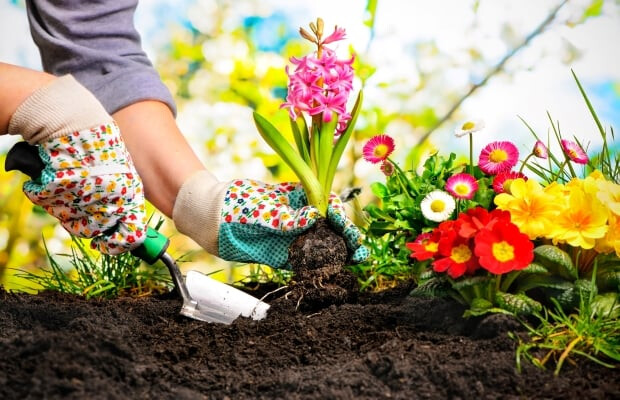
SKYLARK'S PICK OF THE WEEK
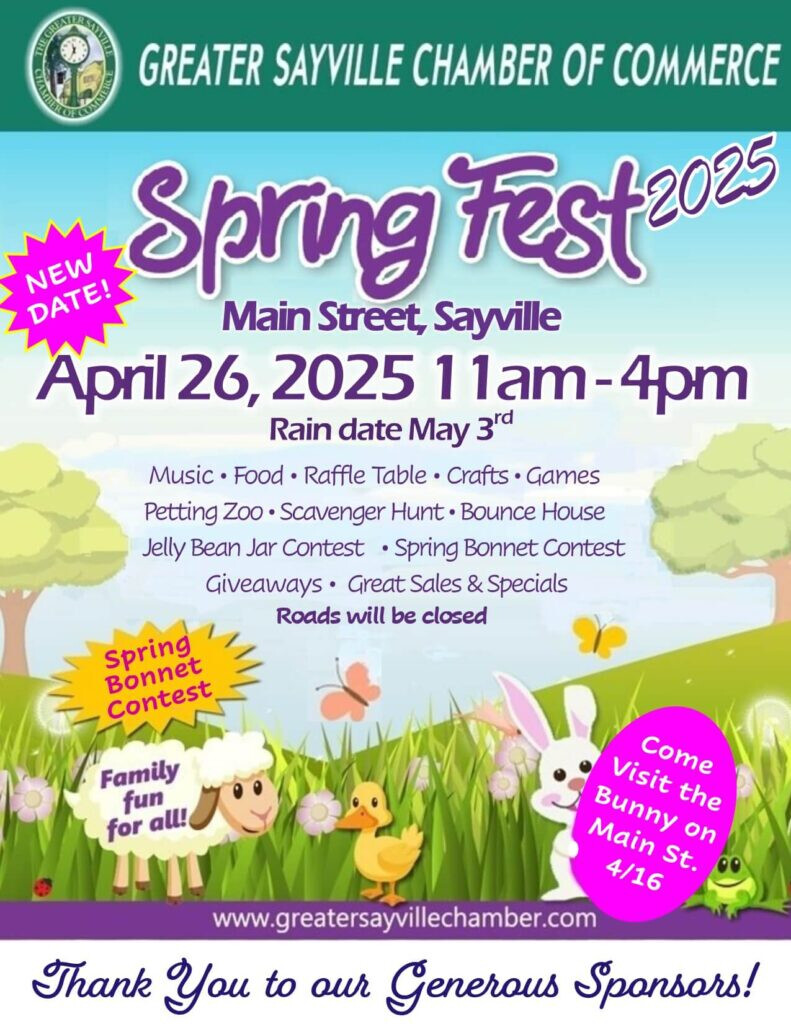
SKYLARK'S HIGHLIGHT OF THE WEEK
Pope Francis passed away this past Monday on April 21st just one day after celebrating Easter in Vatican Square.
Pope Francis was born Jorge Mario Bergoglio on December 17, 1936. He was the head of the Catholic Church and sovereign of the Vatican City State from 2013 until his death. He was the first pope from the Society of Jesus (the Jesuit Order), the first Latin American, the first from the Americas, the first from the Southern Hemisphere, and the first born or raised outside of Europe since the 8th-century Syrian pope Gregory III.
Born in Buenos Aires, Argentina, Bergoglio was inspired to join the Jesuits in 1958 after recovering from severe illness. He was ordained a Catholic priest in 1969 and from 1973 to 1979 was the Jesuit provincial superior in Argentina. He became the archbishop of Buesos Aires in 1998 and was created a cardinal in 2001 by Pope John Paul II. He was the People's Pope for the past 12 years.
Pope Francis' funeral will take place this Saturday, April 26, at 10 a.m. local Italy time (4 a.m. Eastern time in the states) and will be held in St. Peter's Square or in the Basilica, depending on the weather, in Vatican City. Rest in Eternity, Pope Francis. God bless you always.
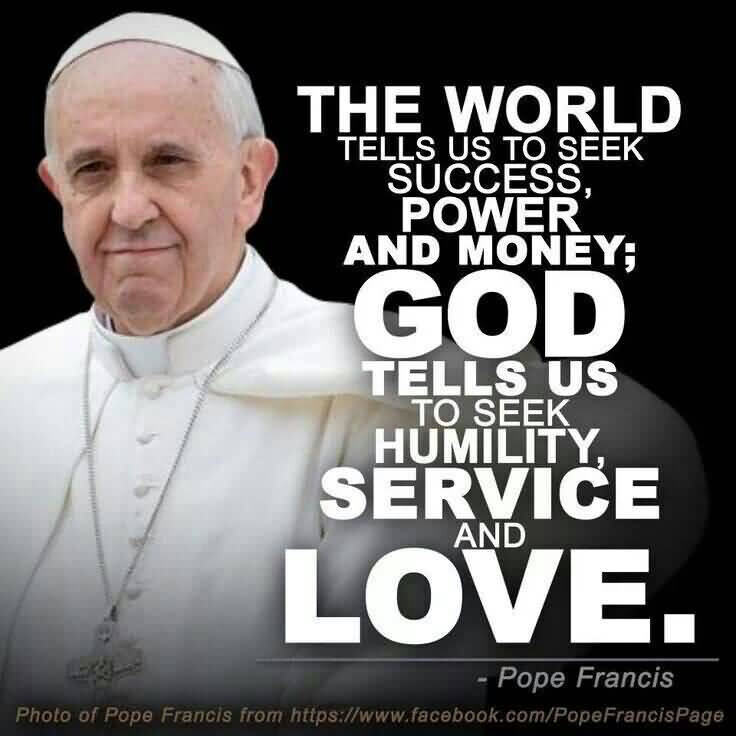
SKYLARK INSPIRATIONAL QUOTE OF THE WEEK
"Just as we need the courage to be happy, we also need the courage to live simply."

SKYLARK'S PRAYER OF THE WEEK
Dear God,
May you embrace Pope Francis into your Kingdom with love and tenderness. Amen.
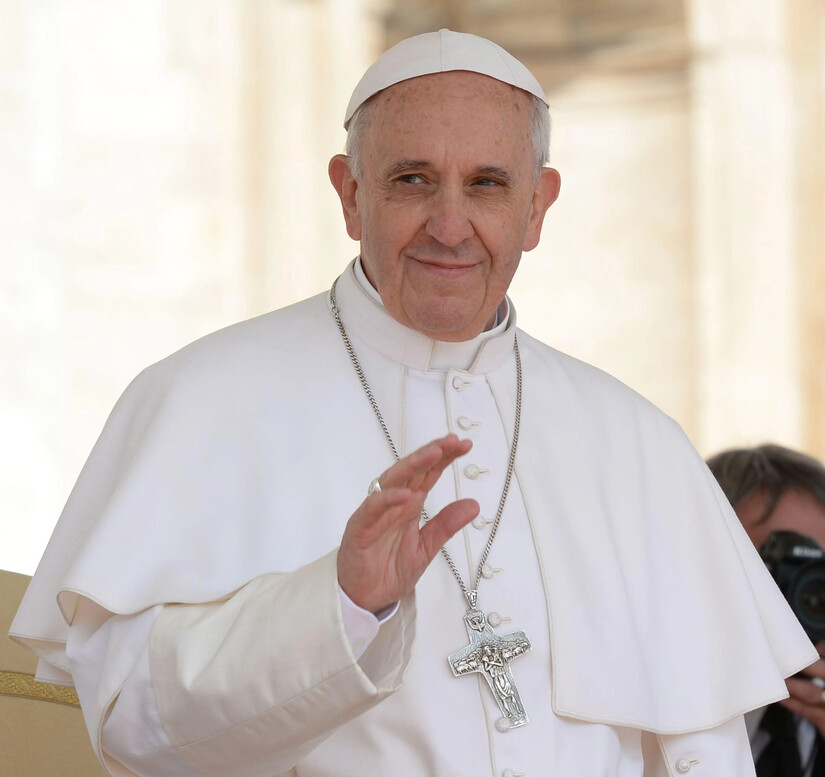
SKYLARK'S QUESTION OF THE WEEK
What does faith mean to you?
Please put your answer in the comments section below this newsletter. I'd love to hear from you.
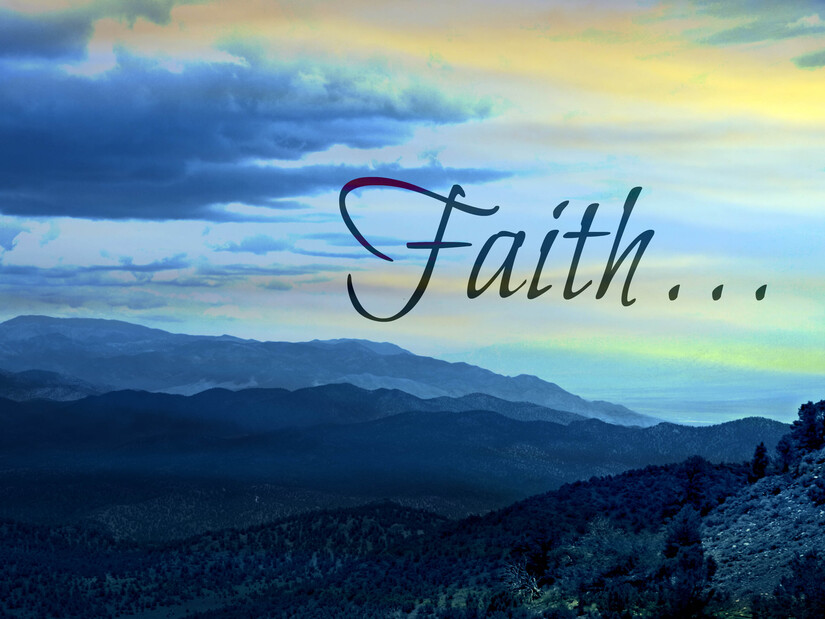
SKYLARK'S SONG OF THE WEEK - NESSUM DORMA! performed by LUCIANO PAVAROTTI
LYRICS
Italian Text
Nessun dorma! Nessun dorma!
Tu pure, o, Principessa,
nella tua fredda stanza,
guardi le stelle
che tremano d'amore
e di speranza.
Ma il mio mistero è chiuso in me,
il nome mio nessun saprà!
No, no, sulla tua bocca lo dirò
quando la luce splenderà!
Ed il mio bacio scioglierà il silenzio
che ti fa mia!
(Il nome suo nessun saprà!...
e noi dovrem, ahime, morir!)
Dilegua, o notte!
Tramontate, stelle!
Tramontate, stelle!
All'alba vincerò!
vincerò, vincerò!
English Translation
Nobody shall sleep!
Nobody shall sleep!
Even you, oh Princess,
in your cold room,
watch the stars,
that tremble with love and with hope.
But my secret is hidden within me,
my name no one shall know...
No... No!
On your mouth, I will tell it when the light shines.
And my kiss will dissolve the silence that makes you mine!
(No one will know his name and we must, alas, die.)
Vanish, o night!
Set, stars! Set, stars!
At dawn, I will win! I will win! I will win!

ABOUT MY BRAND, SKYLARK LIVE -60 AND BEYOND WITH SKYLARK
My brand was born when I turned 60 years old and noticed a profound shift - mind, body, and soul. I wanted to talk about it and share what I was experiencing with other women to help them navigate this age as well. My brand consists of a weekly newsletter and a monthly vlog designed to motivate and inspire women over 60 to thrive in older age through knowledge and self-awareness. I will also consider in-person one-hour chats called The Skylark Sessions in your home or at a local library or senior center. Email me at christineskylark@aol.com
or call me at 917-903-5713 if you are interested. This can be one-on-one or with a small group of women.
Weekly Newsletter - My weekly newsletter features articles about human interest, nature, general observations, happiness, dreams, inspiration, motivation, music, and ideas I want to explore. The topics are endless. I represent Bay Shore and the greater Town of Islip community. There is also a calendar of events. I throw in Italian words, too, because I love the language and all things Italian. Bella Italia! As a paying subscriber, you will receive my newsletter each Wednesday morning in your email. That gives you a head's up, but you can also subscribe for free. And you can advertise your business or event in my newsletter as well. Just click this link below to subscribe:
Monthly Vlog - My vlog goes live on my YouTube channel on the first Monday of each month. It's a recap of the previous month’s newsletter articles and then a conversation on a new topic. It is then uploaded to my Patreon account as well as my social media platforms. Just click the link below to subscribe and click the bell to get notified when a new video is uploaded: www.youtube.com/@christineskylark
WHERE TO FOLLOW AND SUPPORT ME
Patreon - This is my general brand page where you can support everything I do under my brand in one place. I appreciate any level of support that enables me to carve out time to write my newsletters, create my vlogs and continue to expand my brand. Just click the link here: www.patreon.com/SkylarkLive
Social Media - You can follow me on Facebook, X, Instagram, and LinkedIn under my brand, Skylark Live.
Thank you for your love and support! Grazie per il vostro amore e sostegno!


